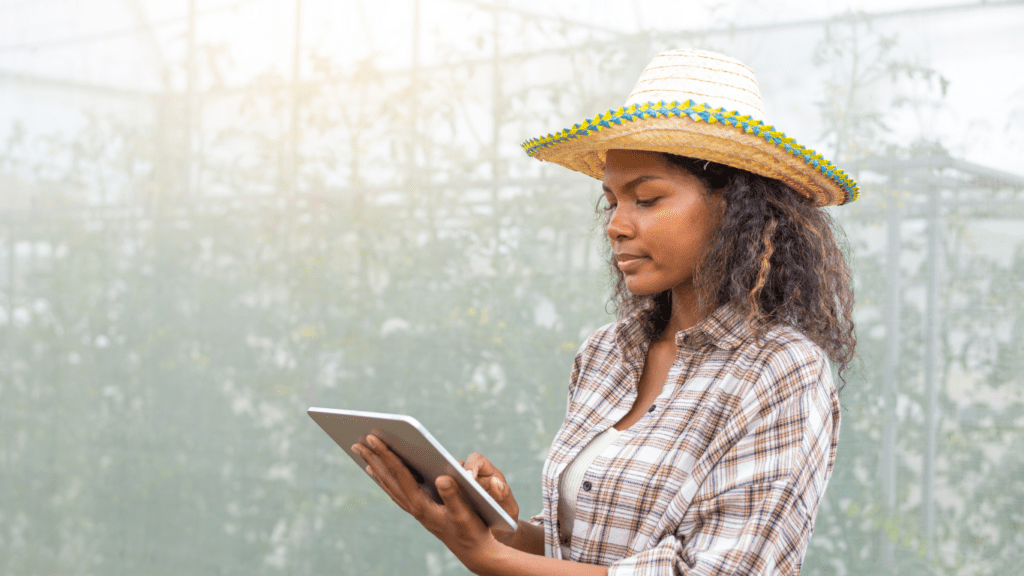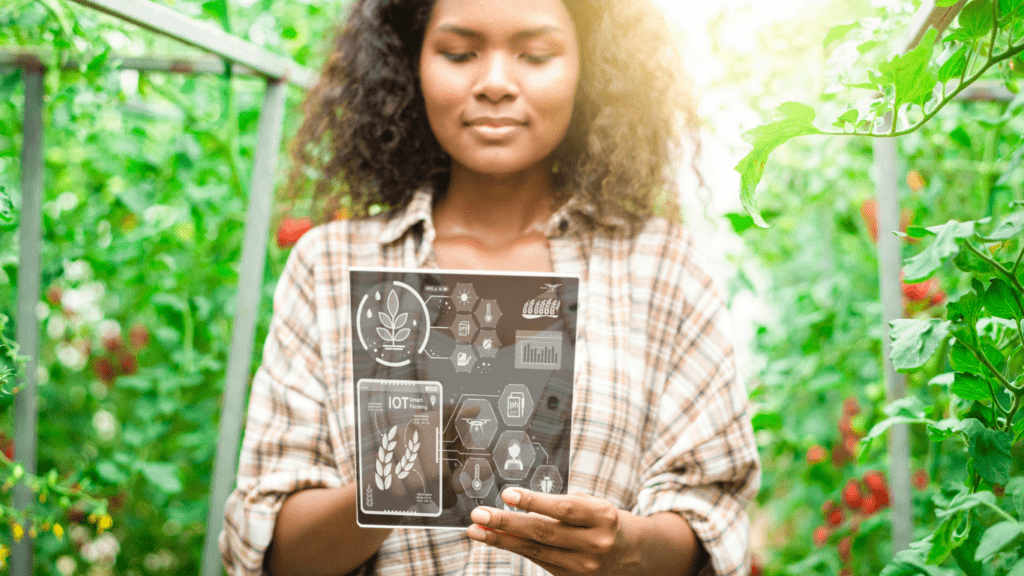In the realm of modern agriculture, the integration of Internet of Things (IoT) technology has revolutionized the way we approach farming in urban settings. As I delve into the world of smart farming, it becomes evident that IoT plays a pivotal role in optimizing crop production, resource management, and sustainability practices within urban agriculture.
Through my exploration of how IoT is reshaping urban farming, I’ve uncovered a myriad of innovative solutions that leverage data-driven insights to enhance efficiency and productivity. From sensor-based monitoring systems to automated irrigation processes, IoT applications are propelling urban agriculture into a new era of precision and sustainability.
Join me on a journey through the interconnected landscape of smart farming, where technology and agriculture converge to cultivate a more sustainable future for urban communities.
The Rise of Smart Farming in Urban Areas
Smart farming has witnessed remarkable growth in urban areas, reshaping traditional agricultural practices through innovative technologies. As technology continues to advance, the integration of Internet of Things (IoT) solutions is playing a pivotal role in transforming urban agriculture. This section delves into the essential aspects of smart farming in urban settings.
The Basics of Smart Farming
In smart farming, IoT enables real-time monitoring and control of agricultural processes, offering farmers valuable insights to enhance decision-making. By utilizing sensors, data analytics, and automation, farmers can optimize crop cultivation, irrigation, and resource utilization efficiently. This technology-driven approach fosters sustainable practices and maximizes yields in urban farming.
Urban Vs. Rural Smart Farming
While both urban and rural smart farming leverage IoT technologies, their implementation and focus areas differ. Urban smart farming often prioritizes space-efficient techniques like vertical farming and hydroponics, catering to the limited land availability in cities. In contrast, rural smart farming emphasizes large-scale precision agriculture and machinery automation. The varying dynamics between urban and rural environments influence the adaptation of smart farming methodologies to suit specific agricultural needs.
IoT Technologies in Urban Agriculture
In urban agriculture, IoT technologies play a crucial role in optimizing various aspects of crop production, resource management, and sustainability practices. Let’s delve into how sensors and data collection, as well as automated systems and robots, are transforming urban farming practices through innovative IoT solutions.
Sensors and Data Collection
Sensors are essential components in urban agriculture as they enable real-time monitoring of crucial parameters such as soil moisture levels, temperature, and humidity. By collecting and analyzing data from these sensors, farmers can make informed decisions regarding irrigation schedules, fertilization needs, and pest management strategies. This data-driven approach helps optimize crop cultivation, minimize resource wastage, and enhance overall productivity in urban farming environments.
Automated Systems and Robots
Automation plays a significant role in streamlining various agricultural processes in urban settings. Automated systems, such as automated irrigation controllers and climate control systems, help farmers in efficiently managing and adjusting environmental conditions for optimal plant growth. Additionally, the use of robots in tasks like planting, weeding, and harvesting contributes to increased efficiency and precision in crop production. By integrating automated systems and robots powered by IoT technologies, urban farmers can enhance operational efficiency, reduce labor costs, and achieve higher yields in limited spaces.
Benefits of IoT in Urban Farming
In urban farming, IoT technology offers various benefits that significantly enhance agricultural practices.
- Increased Crop Yield
Implementing IoT in urban farming leads to a substantial increase in crop yield. By utilizing sensors to monitor crucial parameters such as soil moisture, temperature, and nutrient levels, farmers can optimize growing conditions. This data-driven approach allows for precise irrigation and fertilization, ultimately resulting in improved plant health and higher yields. - Resource Management and Sustainability
IoT contributes to efficient resource management and promotes sustainability in urban agriculture. Through real-time monitoring of water usage, energy consumption, and environmental conditions, farmers can make informed decisions to minimize waste and reduce environmental impact. By utilizing IoT solutions, urban farmers can effectively manage resources, reduce operational costs, and adopt more sustainable farming practices for long-term viability.
Challenges and Solutions
When it comes to implementing IoT technology in urban agriculture, there are specific challenges that need to be addressed for successful integration. Let’s delve into the technical and financial barriers that urban farmers may encounter, as well as the importance of addressing data privacy and security concerns in smart farming.
Technical and Financial Barriers
In urban agriculture, one of the primary challenges faced by farmers is the initial cost associated with implementing IoT systems. Setting up sensors, purchasing equipment, and investing in automation technologies can require a significant financial commitment. Additionally, the complexity of integrating various IoT components and ensuring compatibility among different systems can pose technical challenges. Farmers may need to invest in training their staff to effectively utilize IoT solutions and interpret the data collected. Overcoming these technical and financial barriers is crucial for urban farmers to fully leverage the benefits of IoT in enhancing crop production and sustainability practices.
Addressing Data Privacy and Security
With the extensive data collection involved in smart farming through IoT devices, ensuring data privacy and security is paramount. Urban farmers must implement robust data encryption protocols to protect sensitive information related to crop yields, soil conditions, and resource usage. Unauthorized access to this data could not only compromise the competitive advantage of farmers but also pose risks to their operations and the integrity of the agricultural ecosystem. By adopting secure data management practices, including regular system updates and access controls, urban farmers can mitigate the risks associated with data breaches and unauthorized use of valuable farming data.
Future Trends in Smart Urban Agriculture
Innovations on the Horizon
Exploring the future of smart urban agriculture reveals exciting innovations poised to revolutionize farming practices. Advancements in IoT technology are paving the way for precise crop monitoring and management, leading to increased productivity and sustainability in urban farming. Integration of cutting-edge sensors and data analytics tools enables real-time insights into plant health, soil conditions, and environmental factors, empowering farmers to make informed decisions for optimal crop growth.
Integration with AI and Machine Learning
The convergence of IoT with artificial intelligence (AI) and machine learning algorithms marks a significant leap forward in smart urban agriculture. By harnessing AI capabilities, farming systems can analyze vast amounts of data to predict trends, detect anomalies, and automate decision-making processes. Machine learning models can adapt to changing conditions, offering predictive analytics that enhance crop quality, reduce resource wastage, and streamline farming operations. As IoT continues to evolve, its integration with AI presents limitless possibilities for transforming urban agriculture into a smarter, more efficient industry.

 Gabriella Irvine is a dedicated team member contributing to the growth and development of the project. With a background in environmental science, she brings valuable insights into sustainable practices and community engagement. Gabriella's passion for urban sustainability drives her to collaborate closely with other team members, ensuring that innovative strategies are effectively implemented. Her commitment to education and outreach helps empower individuals and communities to adopt eco-friendly lifestyles, making her an essential asset in fostering positive change within the project.
Gabriella Irvine is a dedicated team member contributing to the growth and development of the project. With a background in environmental science, she brings valuable insights into sustainable practices and community engagement. Gabriella's passion for urban sustainability drives her to collaborate closely with other team members, ensuring that innovative strategies are effectively implemented. Her commitment to education and outreach helps empower individuals and communities to adopt eco-friendly lifestyles, making her an essential asset in fostering positive change within the project.